The Communications Authority of Kenya (CA) and SPIDER have extended their strategic collaboration in the iPRIS Project, reaffirming a mutual commitment toward inclusive and sustainable digital development in Africa. The latest engagement, hosted by CA on May 7th, aimed to enhance cooperation in strengthening regulatory capacity, promoting policy innovation, and fostering regional alignment. From CA, SPIDER was welcomed by the Director General, Mr David Mugonyi, Patricia Kerretts - Kemei, Mr Fred Onchoka (from the 2023A cohort), and Mr Dominic Ooko (from the 2024C cohort).
Collaboration remains a foundation of the iPRIS project, which aims to strengthen digitalisation via African-led and context-centred solutions. Since the first ITP programme (2016–2022), CA has remained a competent partner, leading in advancing regulatory best practices with technical expertise and a sincere commitment to gender-inclusive issues. The first iPRIS cohort, 2023A, featured CA and they are now alumnus, having completed their cycle in Nov 2024. The current CA participants are in the fourth iPRIS cohort, 2024C, and they are soon to complete their cycle later this year.
Read more about what the 2024C cohort has been up to here
Among the key discussion points during this engagement were:
- The need to frame national regulatory instruments in alignment with prevailing trends in regional and global digital transformation;
- The promotion of local ownership, rooted in national development strategies; and
- The use of data and evidence to make informed choices on policies and universal service activities.
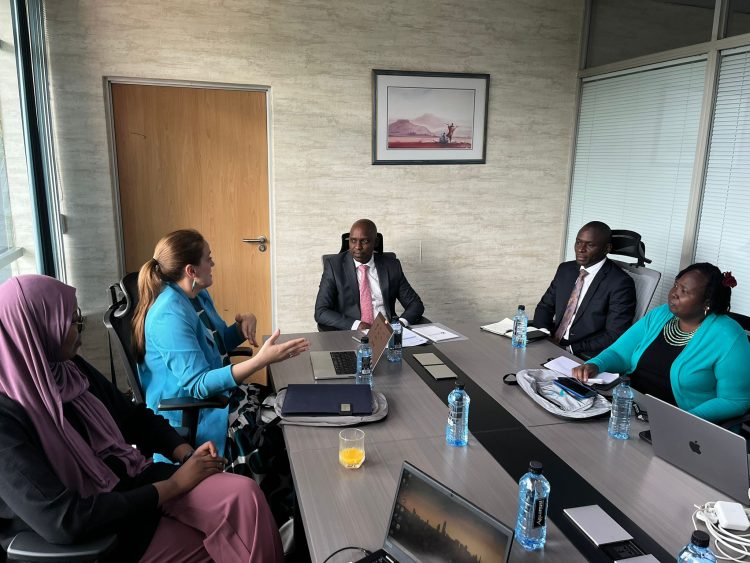
SPIDER and CA discuss matters of digital advancement
Strategic Alignment Leads to Tangible Results
CA mentioned the implementation of fibre deployment guidelines and works having been done on an access gap study, the outcome of which will ensure that universal service funding and infrastructure planning are more effective. Such outcomes are what iPRIS participants look forward to.
SPIDER, as coordinator and implementing partner of iPRIS, pointed to the necessity of institutional alignment and long-term capacity building. According to SPIDER, "the success of iPRIS depends on local leadership and embedding the project's objectives into national strategic priorities."
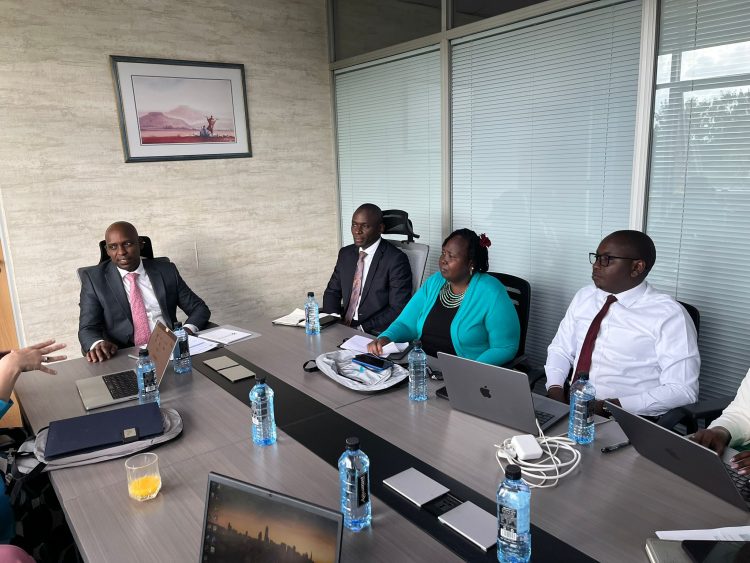
From left: The Director General of CA, Mr David Mugonyi joined by Mr Dominic Ooko, Patricia Kerretts - Kemei, and Mr Fred Onchoka during discussions with SPIDER
A Platform for Leadership in Digital Policy
The CA-SPIDER partnership continues to assist African regulators in adapting to technological change and in shaping it. In this ever-changing environment for digital policies, institutions must be agile, well-informed, and collaborative. iPRIS thus serves as a key institutional-building platform.
As the future iterations of iPRIS unfold, CA Kenya remains a critical stakeholder, securing Kenya's leadership in regional regulatory excellence and the advancement of inclusive digital development.
iPRIS is coordinated and implemented by SPIDER in strategic and technical partnership with the Swedish Post and Telecom Authority (PTS) and the Luxembourg Regulatory Institute (ILR).
iPRIS is funded by the European Union, Sweden, and Luxembourg as part of the Team Europe Initiative “D4D for Digital Economy and Society in Sub-Saharan Africa” (Code: 001).
To enhance regulatory alignment and knowledge sharing, the Nigerian Communications Commission (NCC) and the National Communications Authority of Ghana (NCA) held a high-level bilateral meeting in Accra on 8 May 2025. It was part of a two-day benchmarking mission by the delegation from the NCC, which was undertaken to increase regulatory alignment and jointly address sectoral challenges. The session was useful in allowing the regulators to deliberate on issues that were of concern to them, such as Quality of Service (QoS) monitoring, consumer protection, telecom infrastructure security, and cybersecurity resilience. In addition, they considered the practical aspects of ECOWAS Free Roaming, cross-border oversight of multinational operators, and capacity building for national regulators.
During the visit, a reconnaissance was carried out by the NCC delegation, under the leadership of Executive Vice Chairman Dr Aminu Maida, into the regulatory infrastructure of NCA. This included a visit to the Communications Monitoring Centre (CMC), which supervises network performances almost in real-time throughout the country, and the Common Platform, a common regulatory tool used to monitor financial performance by licensed operators.NCA also briefed the delegation on its advancement towards implementing regional roaming agreements with Côte d’Ivoire, Togo, and Benin, with The Gambia in the trial stage. NCA recognised Nigeria as a strategic partner because of the huge volume of traffic and trade flows between the two countries.
Thereafter, NCC presented some of its accomplishments, such as implementing the NIN-SIM linkage policy, operationalising a national telecoms incident reporting platform, and developing frameworks for measuring consumer satisfaction and operator compliance. The Commission also disclosed the designation of telecom infrastructure as Critical National Information Infrastructure by a Presidential Order and the implementation of the tariff simplification guidelines.
The visit provided an opportunity to reiterate mutual commitment to a structured, evolving engagement. Such an initiative between the two indicates the increased momentum towards integrated, data-centric, and citizen-centric regulation within the ECOWAS region. Both commissions reiterated enhanced cooperation among themselves in institutional linkages, harmonised approaches to regulation, and the buildup of a resilient digital ecosystem across West Africa.
As the Ghana National Communications Authority (NCA) looked forward to the 2025 World Consumer Rights Day, the telecom regulator partnered with the Radiation Protection Institute to feature in GBC’s adult education program. The consumer education focused on enlightening the local populace with facts and de-mystifying myths surrounding Masts and Towers. This exercise took place from 17-20 March and 22 March through live interviews on a local TV channel, GTV Ghana.
To ensure that the information effectively reached consumers, the discussions were held in local languages: Akan, Dagbani, Ga, Ewe, and Hausa. The activity highlighted the efforts that NCA is undertaking to ensure that telecom consumers stay informed regarding concerns they might have about telecommunication infrastructure. Such undertakings aim to improve digital consumption and alleviate consumer concerns by assuring their safety.
The Communications Authority of Kenya (CA), on 7th April, hosted a high-level Regional Development Forum (RDF) for Africa in Nairobi. This meeting brought together primary stakeholders in the telecommunications and ICT sectors to discuss the continent's digital shifts. The International Telecommunications Union (ITU) organised and led the convening, in collaboration with the Africa Telecommunications Union (ATU), to analyse Africa’s digital evolution and discuss regional focus as the telecommunications industry anticipates the 2025 World Telecommunication Development Conference (WTDC). WTDC-25 will take place in Baku, Republic of Azerbaijan, from 17 to 28 November 2025.
This convening provided an opportunity to provide solutions to the issues that Africa grapples with in the digital landscape. The meeting came at an appropriate moment, as the region deals with slow internet adoption and connectivity costs and a concerning digital inequality gap. The Cabinet Secretary of ICT in Kenya, William Kabogo, stated that:
‘This forum is very important for us in Africa, because if you go to Nigeria, a very fast-moving society, they have their successes. You come to Nairobi; we say we are the Silicon Savannah of Africa. If we exchange experiences and information among ourselves, we should be able to get to the top and then tell our development partners this is what we think you can do to assist us.’
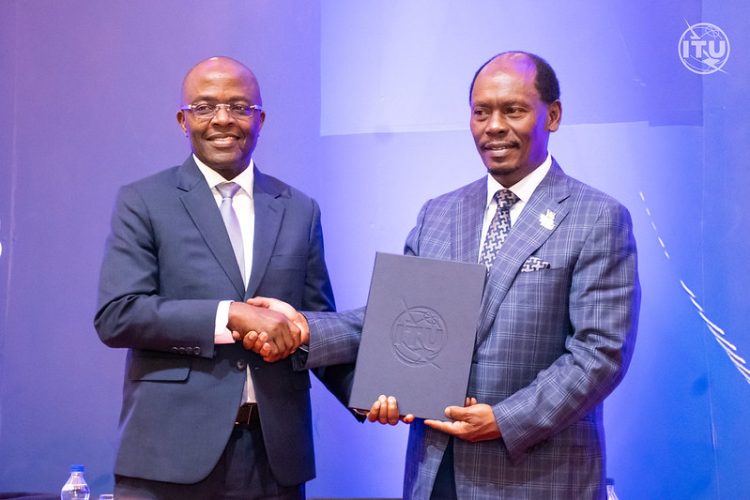
Cosmas Zavazava, Director of the Telecommunication Development Bureau at ITU (left), and William Kabogo, Cabinet Secretary for the Ministry of Information, Communications, and the Digital Economy in Kenya (right). Photo courtesy ©ITU/S. Kinyanjui
The participants insisted on the need for Africa-pioneered solutions, with regional cooperation in mind for the success of the digital environment in Africa. It was noted that such actions can drive development goals that align with Africa’s priorities. John Omo, the Secretary General ITU, revealed that:
‘When digital access remains unreliable and unavailable for nearly 60% of our people, economic participation, social inclusion, and public service delivery are all undermined, and these are development barriers that require coordinated and actionable responses.’
John Omo, the Secretary General ITU. Photo courtesy of ITU/S. Kinyanjui
This convening also assessed the progress made toward the Kigali Action Plan, which was adopted in 2022. This plan focused on expanding broadband, supporting innovations in the region, and promoting safer digital environments.
The Regional Preparatory Meeting for WTDC-25 for Africa (RPM-AFR) took place from 8 to 9 April after the RDF on the 7th in Nairobi. Mr David Mugonyi, EBS, Director General of CA Kenya welcomed the delegation on 8th following the inception of RPM-AFR.
Mr David highlighted the significance of RPM-AFR in anticipation of WTDC-25 stating that
“Digital transformation is a socio-economic imperative for every African country. In capitals across Africa, the hunger for innovation is palpable, our relentless youth are united in demand of more connectivity, more skills, and more prosperity. Our entrepreneurs are attacking opportunities, governments are expanding service delivery and our communities wait expectantly for the fruits of this digital transformation.”
Dr Emma Otieno, Head of Central & Eastern Region at CA, attended the event and shared insightful thoughts from the discussions that took place during RPM-AFR. She revealed that:
“One of the things that have interested me, and we can take pride in because they are aligned to the objectives of iPRIS, is the issues related to capacity building. One commendable thing is that capacity building has been touted as a key pillar in every initiative discussed here. We've discussed emerging technologies, AI, quantum computing, and big data. Capacity building is a key pillar if Africa has to join the race for emerging technologies, especially artificial intelligence.”
Dr Emma is an iPRIS alumni and participated in the first ever iPRIS cohort that had their initial round in Stockholm in November 2023 and their Africa round in Namibia in March 2024. Read more about the first-ever iPRIS cohort’s activities while in Namibia here
In a significant step towards regional integration, Liberia, Sierra Leone, and The Gambia have signed a Memorandum of Understanding (MoU) to strip off roaming charges between these countries. The MoU allows citizens to use mobile services at local rates while travelling to encourage economic collaboration and enhance connectivity.
The MoU is in line with the broader ECOWAS intent to lower high roaming costs across West Africa. Starting from 2 May 2025, Liberian citizens travelling to Sierra Leone will be able to receive calls on their phones without charges- on the local service for use, similar to what happens inside the country. The same contract will apply to The Gambia on July 1, 2025. Abdullah Kamara, Acting Chairperson of Liberia Telecommunications Authority (LTA), hails it as a game-changer for regional connectivity and plans to include further similar arrangements to Ghana, Côte d'Ivoire, Togo, and Benin by the end of the year.
iPRIS is coordinated and implemented by SPIDER in strategic and technical partnership with the Swedish Post and Telecom Authority (PTS) and the Luxembourg Regulatory Institute (ILR).
iPRIS is funded by the European Union, Sweden, and Luxembourg as part of the Team Europe Initiative “D4D for Digital Economy and Society in Sub-Saharan Africa” (Code: 001).
On 27th and 28th March, CRASA was hosted by LCA in Maseru, Lesotho, to hold its 14th AGM. The AGM is the primary decision-making body of CRASA. The AGM convenes once a year to gather and approve reports from the specialised committees, the association's annual budget, the CRASA annual report, audited accounts, and annual operational plans. It also serves as a stage where the members can convene to discuss and share experiences in the sector through centered reports, presentations, and discussions on fields and trends that are relevant to them. Consequently, the AGM fosters collaboration among telecom regulators and stakeholders in the region.
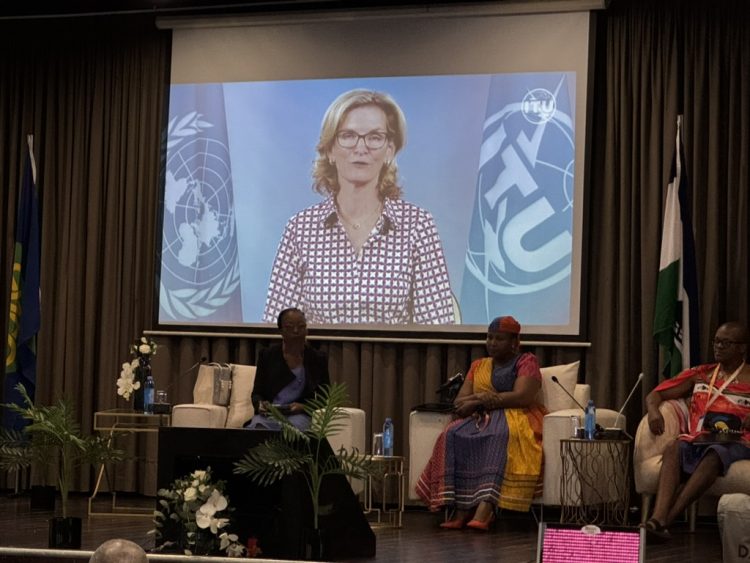
ITU Secretary General Doreen Bogdan-Martin making an opening speech
The 14th CRASA AGM brought together industry peers to discuss emerging issues in the fast-changing digital tool regulatory sector in the southern Sub-Saharan Africa region. Regulation is a key issue when digital tools are in play, and CRASA, through such meetings, underscores the value of evaluating the sector to adapt to the evolving industry. CRASA remains a primary player in determining the shape of ICT governance in the southern region of Sub-Sahara Africa.
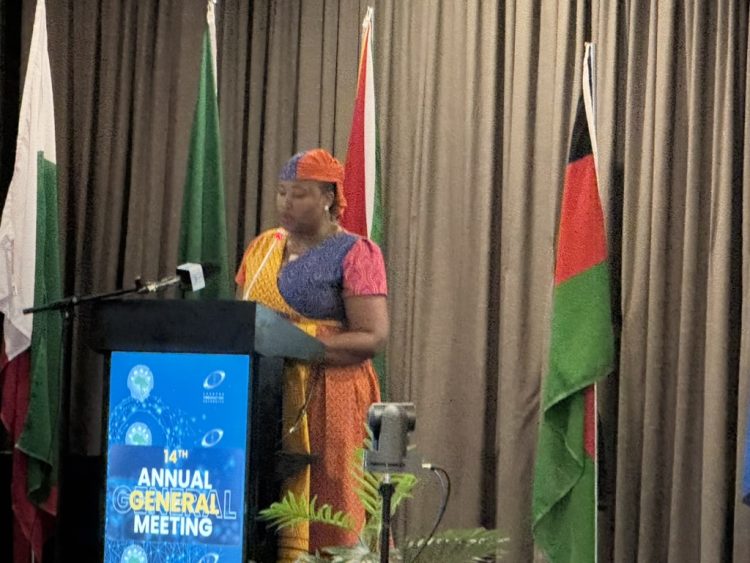
Lesotho’s Minister for ICT and Innovation Nthati Moorsoi welcoming the participants to the AGM
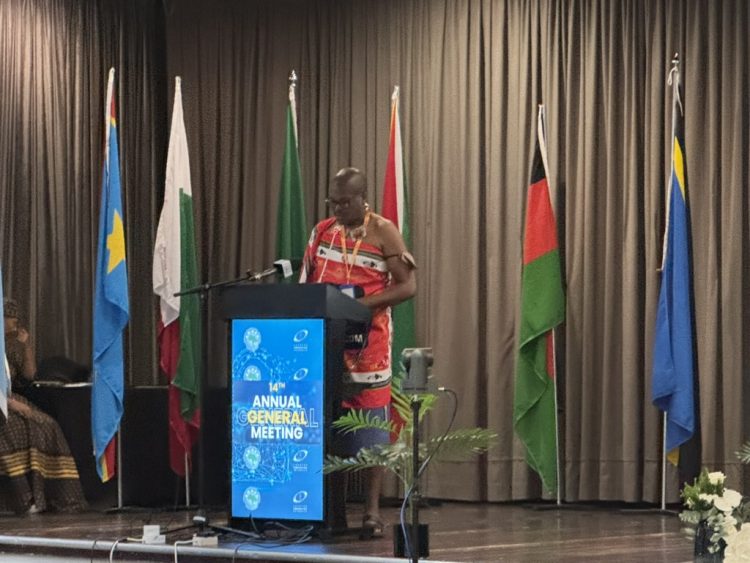
The CEO ESCCOM Eswatini Mvilawemphi Dlamini, who is also the chairperson of CRASA making his remarks at the AGM
We are excited to welcome the fifth iPRIS cohort, 2025B! From May 4 to 21, regulatory experts from Eswatini, Nigeria, Sierra Leone, Tanzania, Uganda and Zambia will dive into an intensive 2.5-week training, connecting, learning, and growing together for a stronger telecom future in Africa.
The 2025B group will be the fourth English-speaking cohort to participate in the iPRIS project after the third English-speaking group (2024C) participated in their first peer-to-peer learning session in Sweden in November 2024. The 2024C cohort also recently participated in an additional knowledge-sharing experience in Namibia in March 2025. An additional iPRIS cohort, such as the first French-speaking 2024B group, also participated in a similar exercise, meeting in Senegal in February. The first iPRIS cohort 2023A, comprising regulators from Nigeria, Kenya, Namibia, Eswatini, South Sudan, Zambia, and Sierra Leone, completed their iPRIS cycle in December 2024.
The 2025B cohort will meet for one week after four months in one of the African countries represented in their group for the Africa phase. This week-long meeting will provide a platform for participants to review the progress of their change initiatives, share results, and engage in discussions to enhance their change initiatives further. One year after the round begins (May 2026), the efficacy and progress of the change initiatives implemented by the participating NRAs will be evaluated in partnership with the participating African and European telecom experts.
iPRIS is coordinated and implemented by SPIDER in strategic and technical partnership with the Swedish Post and Telecom Authority (PTS) and the Luxembourg Regulatory Institute (ILR).
iPRIS is funded by the European Union, Sweden, and Luxembourg as part of the Team Europe Initiative “D4D for Digital Economy and Society in Sub-Saharan Africa” (Code: 001).
From March 17-20, iPRIS was in Swakopmund, Namibia, hosted by Communications Regulatory Authority of Namibia (CRAN) where our fourth iPRIS cohort, comprising of ICT experts representing National Regulatory Authorities (NRAs) from Namibia, Kenya, South Sudan, Liberia, Zimbabwe, and Ghana, took part In the Africa Regional peer to peer knowledge building session. They were also joined by Mr. Anthony Omoshie from the West Africa Telecommunications Regulators Assembly (WATRA | ARTAO) and Mr. Alexis Sinarinzi from the East African Communications Organization (EACO).
Ms Jeanine Du Toit (CRAN Board Member) welcomed the participants to the culturally rich coastal town on the first day of the sessions. Ms Jeanine had valuable insights to offer as she acknowledged the relevance of the iPRIS project.
She noted that “the iPRIS project was conceived as a response to the growing complexities and challenges within the ICT sector, an acknowledgment that the future of our digital economy depends on robust regulatory frameworks, effective policies, and the skilled personnel who will implement them.”
Additionally, the NRAs presented their progress and results regarding the change initiative. Change initiatives are the cornerstone of iPRIS and are specifically designed to align with the strategic agendas of the participating national telecom regulators. They are strategic projects chosen and undertaken by the national regulators to contribute to bridging the digital divide.
The week-long programme provided comprehensive sessions to enhance skills and knowledge across various ICT regulatory topics. Participants engaged in workshops on strategic foresight led by Lars Gustafsson, iPRIS Coordinator at Swedish National Telecom and Post Agency (PTS). Mr. Anthony Omoshie from the West Africa Telecommunications Regulators Assembly (WATRA) and Mr. Alexis Sinarinzi from the East African Communications Organization (EACO) offered insights on regional harmonisation aimed at advancing economic and social development in the region.
Kerstin Borglin and Katja Sarajeva from SPIDER led an interactive project management essentials and MEAL (Monitoring, Evaluation, Accountability, and Learning) frameworks session engaging participants in hands-on learning to boost program effectiveness and sharpen impact assessment skills. Jens Ingman (Swedish Post and Telecom Authority) also delivered an insightful session on Broadband Mapping, shedding light on critical strategies for improving connectivity. Hans Hedin, also from Swedish Post and Telecom Authority, facilitated a session on strategic foresight and intelligence. Dr. Caroline Wamala Larsson (Director, SPIDER) facilitated a session on diversity and inclusion strategies, equipping participants with tools to foster inclusive and equitable environments within their telecom organisations. Ericsson representatives also provided valuable insights on 5 G.
Along the sidelines of the training, the telecom regulators enjoyed a cultural visit with an excursion to the Moonlandscape, experiencing the radiant heart of Namibia.
This cohort will meet in December 2025 for their wrap-up plenary session, which will cover the progress that the National Regulatory Authorities have made within their change initiatives.
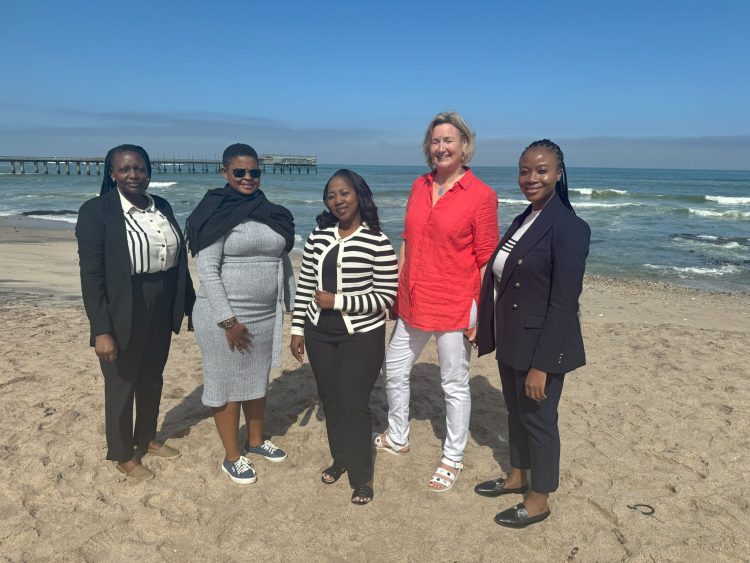
Katarina Schyberg, iPRIS Project Lead with CRAN representatives in Swakopmund
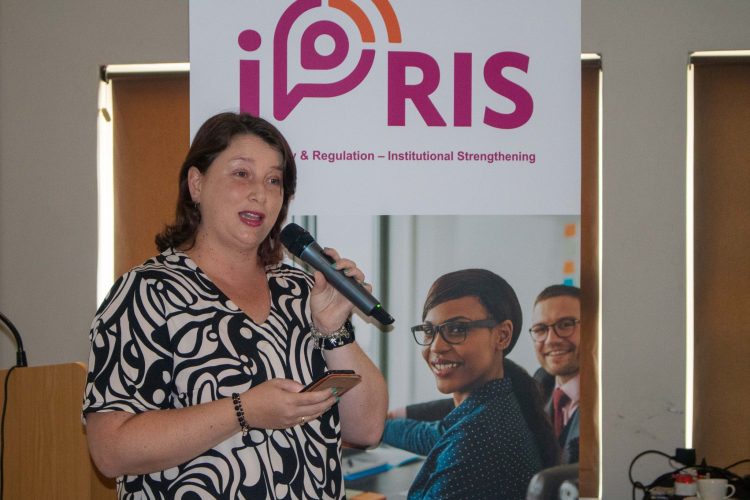
Ms Jeanine Du Toit (CRAN Board Member) welcomes the participants to Swakopmund
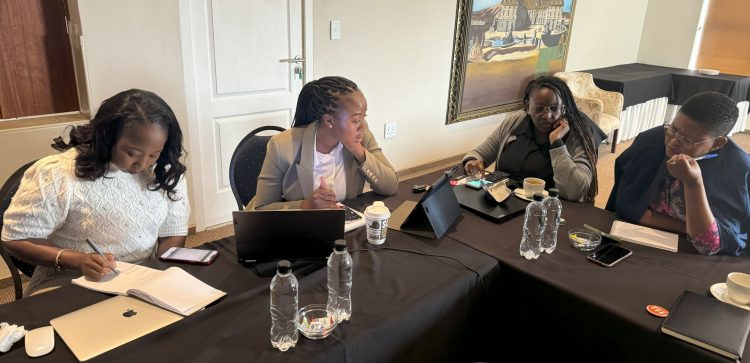
Participants engaging in discussions during the knowledge-sharing sessions
iPRIS is coordinated and implemented by SPIDER in strategic and technical partnership with the Swedish Post and Telecom Authority (PTS) and the Luxembourg Regulatory Institute (ILR).
iPRIS is funded by the European Union, Sweden, and Luxembourg as part of the Team Europe Initiative “D4D for Digital Economy and Society in Sub-Saharan Africa” (Code: 001).
The first French-speaking iPRIS cohort (2024B) met in Dakar for a peer-to-peer knowledge-sharing session from February 12-15. This meeting follows their inaugural participation as iPRIS participants in Luxembourg in September 2024. Six regulators participated: ANRTIC Comoros, ARCEP Central Africa Republic, ARCEP Chad, ARE Mauritania, ARPCE Congo, and ARTP Senegal. They were joined by Ms. Bernice Otye Edande, representing ARTAC, Mr. Ruffus Samuel from WATRA, ILR, and FRATEL, with SPIDER as organiser.
The session enabled the participating regulators to progress in planning and monitoring their ‘change initiatives,’ the strategic projects that each national team develops during the iPRIS cycle. Speeches from representatives of the Swedish Embassy in Senegal, the Luxembourg Embassy, and the EU Delegation in Senegal punctuated the session's opening.
This cohort will meet in October 2025 for their wrap-up plenary session, which will cover the progress that the National Regulatory Authorities have made within their change initiatives.
iPRIS contributes to reducing the digital divide by improving inclusive and meaningful digital connectivity in Africa. The project thus contributes to the realisation of the African Union’s Digital Transformation Strategy 2020-2030 in line with the EU Global Gateways strategy.

iPRIS participants in Senegal at the backdrop of the peer-to-peer learning sessions
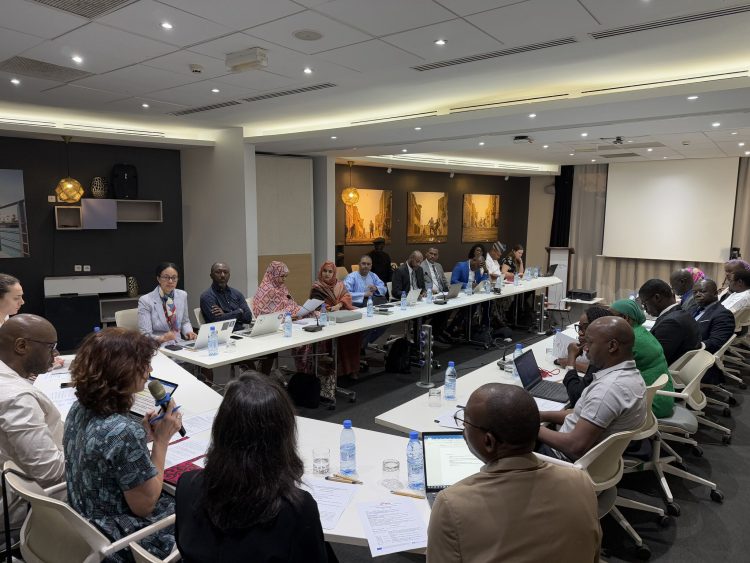
The participants hold peer-to-peer discussions during the week in Dakar
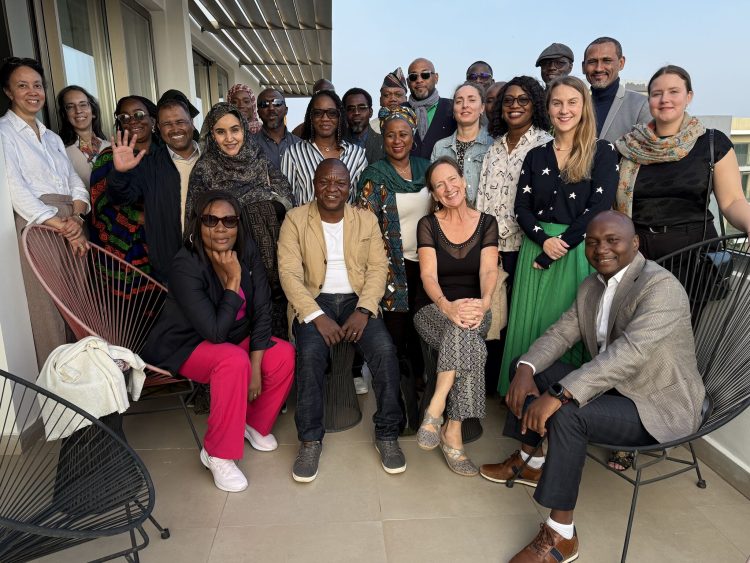
The first-ever iPRIS French-speaking cohort with their African and European peers in Senegal
iPRIS is coordinated and implemented by SPIDER in strategic and technical partnership with the Swedish Post and Telecom Authority (PTS) and the Luxembourg Regulatory Institute (ILR).
iPRIS is funded by the European Union, Sweden, and Luxembourg as part of the Team Europe Initiative “D4D for Digital Economy and Society in Sub-Saharan Africa” (Code: 001).
For the first time in COP history, the Presidency has acknowledged the role of digitalisation in climate talks, designating a Digitalisation Day. The 2024 UN Climate Change Conference in Baku, Azerbaijan, will feature the Green Digital Action track, emphasising the role of digitalisation in climate resilience. Digital technology offers immense potential to enhance food production and supply efficiency in Africa, promising significant economic, social, and environmental benefits.
Driving transformative climate action

On November 16, 2024, two key events will occur: a high-level meeting and the Declaration on Green Digital Action launch, both focusing on how digital technologies can drive transformative climate action.
The High-Level Roundtable on Digital Action Path 4 Green World will explore how technology can advance climate goals. Key speakers include H.E. Ms. Nigar Arpadarai, Climate Change High-Level Champion for COP29; H.E. Mr. Rashad Nabiyev, Minister of Digital Development and Transport of Azerbaijan; and H.E. Ms. Doreen Bogdan Martin, Secretary-General of the International Telecommunication Union (ITU).
The roundtable, moderated by Mr. Tomas Lamanauskas, Deputy Secretary-General of the ITU, will feature insights from government representatives from Bahrain, Brazil, China, Egypt, Estonia, Japan, Kazakhstan, and more.
The event will also bring together partners like the IAEA, UNECE, UNCTAD, UNDP, UNEP, UNESCO, UNIDO, World Bank, and private sector leaders from companies like Alibaba, Cisco, Google, and Nokia.
COP29 Declaration on Green Digital Action

The high-level meeting will conclude with adopting the Declaration on Green Digital Action, a global commitment to promote climate-positive digitalisation, reduce ICT emissions, and expand access to green technologies.
The Declaration calls for collaboration among governments, the private sector, and international organisations to advance sustainable digitalisation, especially in developing regions. It encourages regulatory frameworks that support eco-friendly digital practices, positioning digitalisation as a key element in global climate action. Governments and stakeholders are invited to endorse the Declaration, joining a unified effort to leverage digital innovation for a sustainable future.
We are excited to welcome the fourth iPRIS cohort, 2024C! From November 10–27, regulatory experts from Liberia, South Sudan, Ghana, Namibia, Kenya, and Zimbabwe will dive into an intensive 2.5-week training, connecting, learning, and growing together for a stronger telecom future in Africa.
The 2024C group of participants will be the fourth cohort to participate in the iPRIS project after the first Francophone group participated in their first peer-to-peer training in Luxembourg. The French cohort was preceded by two English-speaking cohorts and a French-speaking cohort. The first iPRIS cohort 2023A, comprising regulators from Nigeria, Kenya, Namibia, Eswatini, South Sudan, Zambia, and Sierra Leone are set to complete their iPRIS cycle this year.
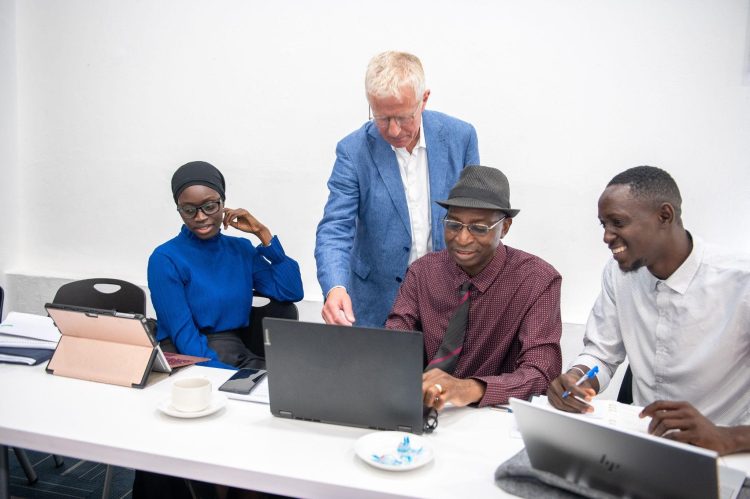
Telecom experts from The Gambia and Dr Bengt Mölleryd from SPIDER reviewing the change initiative project plan during the iPRIS peer-to-peer session in Dar es Salaam in September 2024.
The 2024C of this year's cohort will meet for one week after four months in one of the African countries represented in their group for the Africa phase. This week-long meeting will provide a platform for participants to review the progress of their change initiatives, share results, and engage in discussions to enhance their change initiatives further. One year after the round begins (Dec 2025), the efficacy and progress of the change initiatives implemented by the participating NRAs will be evaluated in partnership with the participating African and European telecom experts.
The 22nd Annual Meeting of the French-speaking network for telecommunications regulation (Fratel) will take place in Libreville, Gabon, from November 26 to 27, 2024. Hosted by Gabon's Electronic Communications and Postal Regulation Authority (ARCEP), this year’s gathering will focus on the theme: “Future Business Models and Strategies for Telecom Operators.”Fratel, the French-speaking telecommunications regulation network created in 2003, aims to contribute to training and collaboration between its members.
This convention will feature dedicated sessions for those engaged in improving telecommunications services and regulations. Two additional meetings for Fratel members and authority leaders will also address " What are the regulations for investments and innovations?"
This event will serve as an appropriate platform for regulators and other key telecom sector stakeholders to share their views about the regulatory structure for the future.
Get more information about this event here.
Borgarfjordsgatan 12, Kista,SWEDEN
Postal Address: Stockholm University, Department of Computer and Systems Sciences/DSV, SPIDER, P.O Box 1073, SE-164 25 Kista, Sweden
Copyright © 2025 iPRIS. All rights reserved.